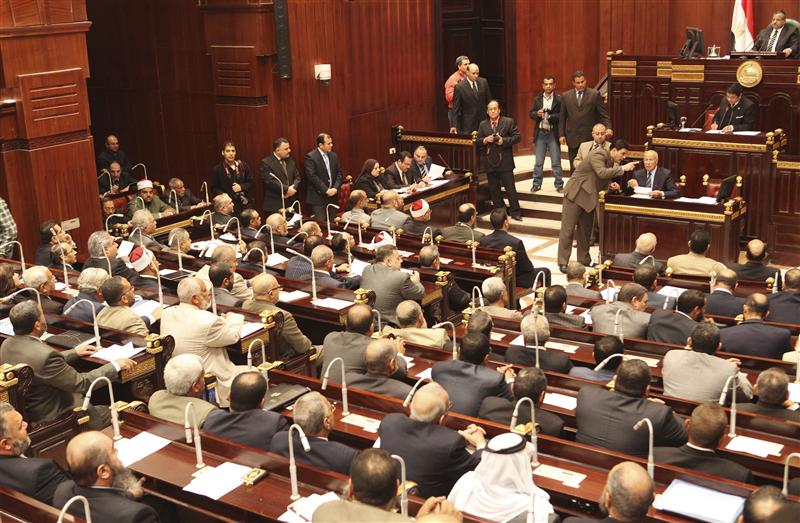Latest NEWS
- Aswat Masriya, the last word
- Roundup of Egypt's press headlines on March 15, 2017
- Roundup of Egypt's press headlines on March 14, 2017
- Former Egyptian President Hosni Mubarak to be released: lawyer
- Roundup of Egypt's press headlines on March 13, 2017
- Egypt's capital set to grow by half a million in 2017
- Egypt's wheat reserves to double with start of harvest -supply min
- Roundup of Egypt's press headlines on March 12, 2017
Update: Shura Council approves final draft of Islamic bonds law

A general view shows the Shura Council during its meeting in Cairo December 26, 2012. The Islamist-dominated upper house of parliament (Shura Council), which now holds legislate power, is meeting for the first time on Wednesday, under the newly-approved constitution. REUTERS/Asmaa Waguih
Egypt's Shura Council (upper house of parliament) unanimously approved the Islamic bonds (Sukuk) draft law, the Middle East News Agency stated on Tuesday.
The council considered notes from a panel of senior Muslim clerics of Al-Azhar University on the law, the "voice of the people" channel that broadcasts sessions of the parliament reported.
The law's fourth article, which stirred a wave of debate among council members, forbids the use of public, state-owned fixed and transferrable assets and their benefits. It states that if these assets are used, government bonds should be issued in their place.
The article states that Egypt's cabinet, governorates and legal entities may issue bonds in exchange for access to the benefits of private, state-owned fixed assets.
The Islamic bonds (Sukuk) law had sparked debate when it was first discussed at the end of 2012 after al-Azhar rejected the draft law, citing articles that allow renting or mortgaging state assets.
To ease these qualms, the government said the law will will not allow public assets such as the Suez Canal and other public facilities to act as collateral for sukuk bonds.
Egyptian officials believe that issuing sovereign sukuk is one important means of fixing the growing economic crisis Egypt has been suffering from since a popular uprising toppled former President Hosni Mubarak in 2011.










